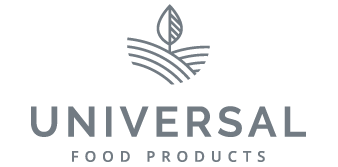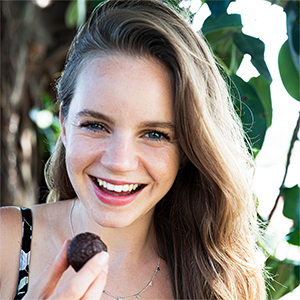Healthy, glowing skin is something we all work towards. It’s easy to get carried away with pricey skincare products that claim to eradicate blemishes and balance un-even skin tone, but diet should not be overlooked! Careful nutrient consideration for skin health is both easy and delicious, with a favourable outcome! Look towards leafy green vegetables, nuts, seeds, oily fish, beans and yoghurt as every-day beauty foods to structure your diet around, to eat your way to glowing skin.
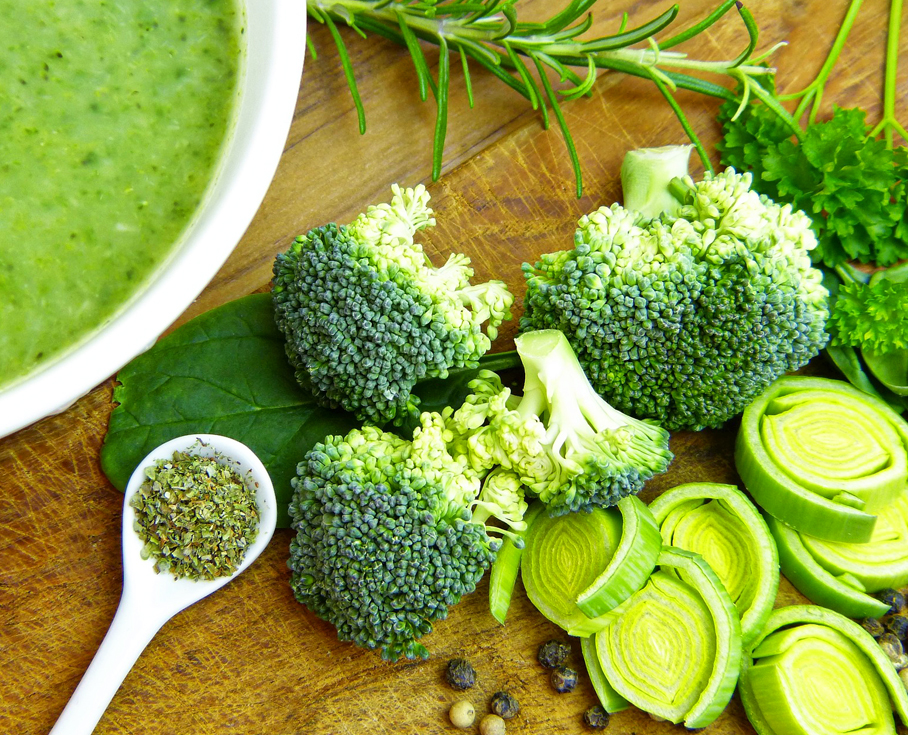
Vitamin A
Vitamin A is known to help control skin inflammation. It acts as a therapeutic agent in skin conditions like acne and rosacea, encouraging skin renewal and healing. Its use in treating acne particularly has been well studied. When used topically, vitamin A reduces inflammation and consequently the amount of acne. Orally, vitamin A decreases the activity of the skin’s sebaceous glands, which control oil production, further suggesting the role of vitamin A for acne-prone skin.
Food Sources of Vitamin A: papaya, pumpkin, sweet potato, kale, carrots, broccoli, spinach, eggs, beef liver.
Vitamin C
Vitamin C elicits a potent anti-inflammatory, antimicrobial action when it comes to skin health. Topical vitamin C use has been shown to reduce the occurrence of inflammatory lesions associated with acne. Vitamin C also promotes normal development, growth and death of skin cells, and is recommended to be used both topically and orally. An 800mg dose daily is recommended.
Food Sources of Vitamin C: kiwi fruit, capsicum, tomato, citrus fruits, kale, brussels sprouts, broccoli.
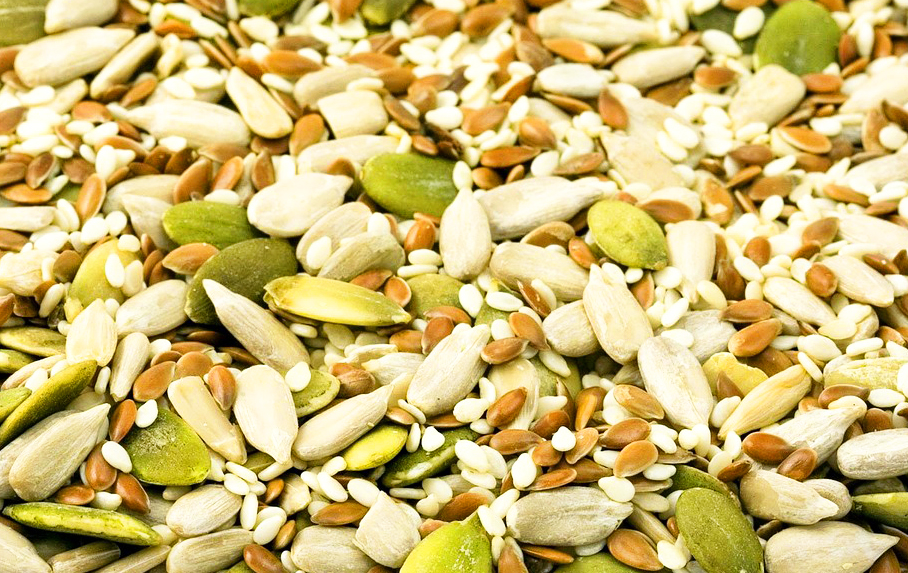
Zinc
This commonly overlooked mineral has a hugely important role in skin health! Zinc largely plays a structural role in skin development, and is highly indicated in effective skin healing. Zinc is also anti-inflammatory, protective against harmful UV rays and has been noted to treat acne well.
Food Sources of Zinc: pumpkin seeds, oysters, spinach, flaxseeds, beef, prawns, kidney beans.
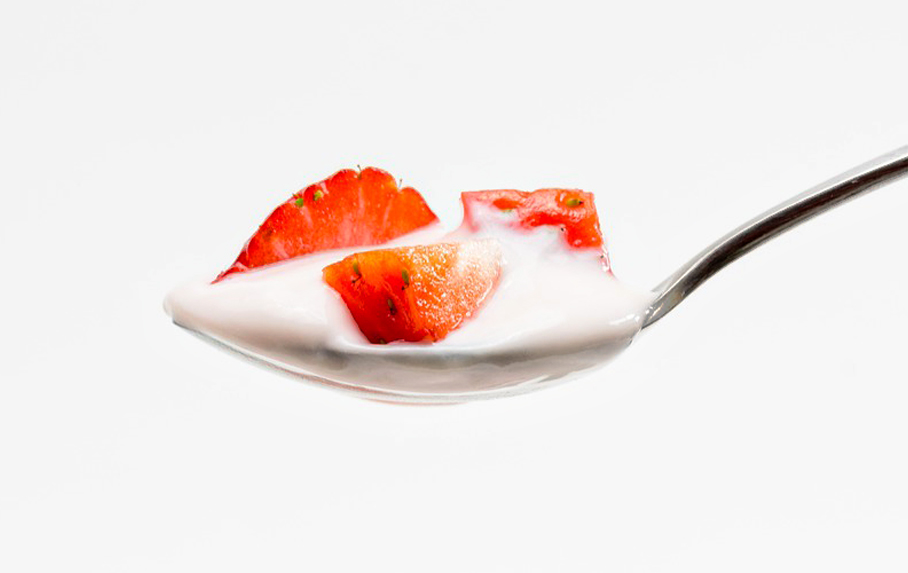
Probiotics
It has now become increasingly popular knowledge that the gut, skin and brain share a line of rotation, commonly referred to as the ‘gut-brain-skin axis’. This axis has been widely studied and it has been revealed that emotional states alter normal intestinal microbiota, increase intestinal permeability, and contribute to systemic inflammation. Probiotic use for skin, has been shown to reduce stress-induced skin inflammation, maintain a healthy intestinal barrier and regulate and reduce sebum production. Specifically, Lactobacilli strains; acidophilus and bulgaricus have been shown to provide have clinical improvement, especially where inflammatory acne was concerned and reduced sebum levels.
Food Sources of Probiotics: yoghurt (un-sweetened), miso, tempeh, fermented vegetables, kefir, kvass.
Omega-3 Fatty Acids
Omega- 3 fatty acids (Omega-3s) are known to be incredibly anti-inflammatory, and this action is noticed especially through the skin, following supplementation. Omega-3 intake has been shown to specifically lower levels of inflammatory markers, which, in excess can cause a whole host of skin conditions. High consumption of Omega-6 rich oils and grains naturally increases levels of these prostaglandins and leukotrienes. Given the nature of the Western diet and regular consumption of these foods, there is a clear link to a high incidence of unwanted skin conditions.
Food Sources of Omega-3s: walnuts, flaxseeds, chia seeds, hemp seeds, mackerel, salmon, sardines, trout, grass-fed beef.
Chromium
Our traditional Western diet, high in refined sugars, tends to spike insulin levels, causing the all-too-familiar sugar crash we’ve all been known to experience, following a binge on ice cream or birthday cake! Traditional diets with a lower sugar intake are protective against troublesome skin conditions, including acne. Chromium helps to enhance the action of insulin, bringing about balance to fluctuating sugar levels within the blood. Studies have shown that a daily supplement of 400 mcg of chromium improves skin integrity and conditions like acne.
Food Sources of Chromium: broccoli, cinnamon, brown rice, mushrooms, brewer’s yeast, eggs.
REFERENCES
Acne vulgaris, mental health and omega-3 fatty acids: a report of cases
Clinical naturopathic medicine – eBook
Kligman AM, Fulton JE, Jr., Plewig G. Topical vitamin A acid in acne vulgaris
Topical vitamin A acid in acne vulgaris
Acne vulgaris, probiotics and the gut-brain-skin axis – back to the future?
Acne vulgaris, probiotics and the gut-brain-skin axis: from anecdote to translational medicine
A double-blind study of the effect of zinc and oxytetracycline in acne vulgaris



